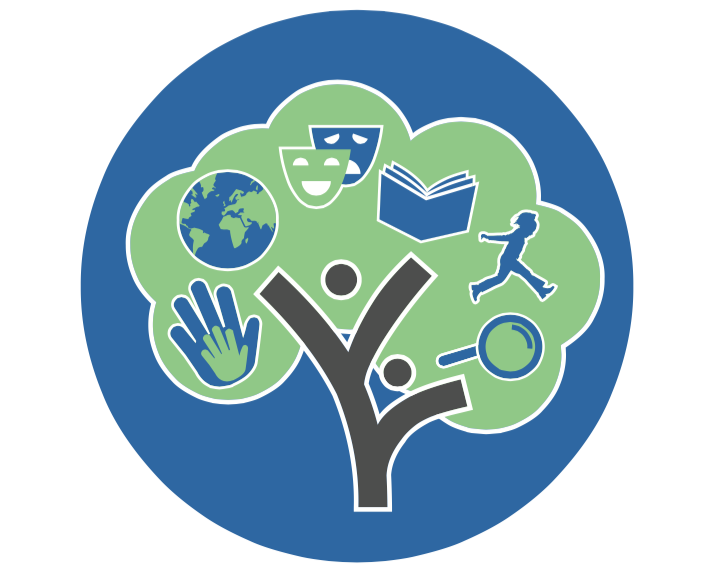|
Ahhh, Reading. Writing. They're always met with jumps of joy, right? Tears of happiness? Woohoo, they say! Give me that paper and pencil so I can just write and write and write and then edit it and read it over and over again! Yay!
Who wants to play a video game when you could read a levelled reading book!? Or watch a movie when you could write a journal response?! Yeah. No. I thought not. You're not alone. Don't worry. Unless you honestly can answer yes to those questions - your child loves to write and read - congratulations! You've beaten the odds! Because odds are, you didn't answer yes to those questions. You're right there with me - my child despises reading and writing. They can do it, you say, if they tried, but they don't try. They put in minimal effort and are constantly negotiating a way out of doing it. Or worse, they've given up completely and now find it frustrating, challenging, and, sadly, it brings out the tears. Well, in our experience as teachers who work with children who struggle to enjoy reading and writing, it's actually quite simple. Of course there could be something going on that is getting in the way of reading with fluency or comprehension, but even that can be quite simple, too. Honestly, we believe we, as in teachers and parents, have successfully, over time, completely sucked the fun out of reading and writing. Now, all that our youngsters experience is a boring, time consuming, uncreative, and, sometimes, obsolete task that has yet to have a real connection/purpose with their real life. Keep in mind - kids growing up today are learning and communicating in a far different world than we ever could have imagined when we were youngsters. You often don't learn things by reading a book. You learn things by googling it. You send a friend a text without even having to speak out loud or write in full sentences, let alone full words. You enjoy detailed, imaginative stories and can even engage in them, all through the television screen, or a computer, or even a phone. Simply put, literacy, as in reading and writing, seems to have lost its place as a pastime or even as an important communicative skill in the daily life of our youngsters. The way in which knowledge is attained today is drastically different, and continuously changing. This means we need to look at how, and why, we are teaching it as a skill in school and where, if any, is the creative process that once made it enjoyable and engaging?. When reading and writing are experienced just for pure reading and writing's sake, some of the benefits, just to name a few, are:
So, this brings us to our main point. Perhaps, we can adjust our way of teaching and learning of reading and writing, so that we can offer our children growing up today the gifts literacy has to offer without turning it into a chore. Together, let's put the fun back into literacy and instil them with the confidence that they, too, have wonderful ideas to share. . Here's Our 10 Ways to Boost Literacy at Home 1. Lighten Up On the Rules Just let them enjoy a book, pictures and all. Or write, just for the sake of writing whatever they want to write. Even if it makes no sense to you. Smile and appreciate the creative, or even 30 second effort, they put into. Treat it as you would an artistic ability as much as you treat it as a necessary skill. Writing and reading are very much a creative process that requires personal investment. The better it is/becomes, usually depends on how invested the writer/reader is on their own. Therefore, a child needs to feel empowered that they have the ability to do it. When someone responds to a child's drawing, for instance, people usually are positive no matter what it looks like. Then, after time, children invest their own time into wanting their pictures to look better. Reading and writing, as anything, fit in this area of learning as well. If we focus too much on the rules, then a child never sees it as a creative process and assumes there is simply a right and wrong way to do it, which in turn makes one believe they're either good or bad at it. Don't worry about using a finger to follow along in the book or not. Don't worry about sounding out every single word out perfectly. Don't worry about trying to learn and apply everything, every time. Don't worry, period. Just enjoy the experience of simply reading a book or writing out an idea. And congratulate them on their effort. In time, the effort will increase as the positive support continues. 2. Read, just for Reading's Sake Just read. No assignments, book reports, records of minutes reading. Just read. And then when you feel like you're done, put it away. And then when you think of it again, read again. You know, just like you would with anything you'd like to make a hobby or interest. 3. Write, for just Writing's Sake Just write. For yourself. For enjoyment. For stress relief. For deeper understanding. For to do lists. Just write and don't judge the writing with a measure of being good or bad. It's a creative process, open-ended and personal. Get rid of the rule book and just write. It doesn't always have to be on display or for someone else's eyes. It's just for you. 4. Low-Stress Environment There's a time and a place to learn the conventions of writing and reading. Overtime is not one of them. Make time to create a low-stress environment to enable a fondness to emerge. Comfy chairs, blankets, a snack and a good book. On a rainy day. Or an open journal and pen right before bed, in a quiet dimly lit home. Take the stressors away and just enjoy literacy for what it can do for ourselves. Take the pressure off of doing it 'right' and making it perfect. Don't edit. Don't worry. If the focus is to constantly improve and do better each time, the thrill or enjoyment ever felt before will be quickly lost. Get back to the creative process that it is. Let it go. 5. Role Model Children learn most from watching and learning from the adults in their life. If you want your little one to pick up reading and writing, do so yourself. And make sure they see you doing it. Don't talk about it, just do it. No fuss. Be the role model for your children to help them grow into individuals you admire and are proud of. 6. Make it Readily Available Have books around the house. On display. Easy to see and pick up. Leave them in plain sight, switch them up and put new ones around. Enrich the environment in literacy. Books of different kinds. Magazines, Newspapers, Picture Books, Graphic Novels, the works. The more they are around, the more likely they might be picked up and looked at, without any prompting to do so. 7. Read more than just books Reading doesn't just happen in books. It's on social media, newspapers, recipes, subtitles, menus, and roadsigns. It's everywhere. Take notice that one doesn't have to read a book cover to cover to be a reader. 8. Visit the Library. Use the Library The library is this magical place which houses millions of books, of all shapes and sizes. Among movies, learning resources, quiet sitting areas, and much more All Free. They also have programs, FREE PROGRAMS, for families, for teens, for children, for adults - all focused on getting you focused on enjoying the world of literacy. Imagine! Free to use and sign up, too. Amazing. 9. Talk about what you read and write Do you read? Maybe not books as often as you'd like, but you still read. Talk about it. Maybe not even to your children, but do so around your children. They're listening. Talk about an article you read. A post you wrote. A recipe you saved. A comment thread you followed. Anything. It's all exposing the enjoyment you get out of reading and writing, and how you apply it to your life. Help create those real life connections for them, realizing that the literacy that once was has changed and adapted with the times. Be open to it and embrace it. 10. Read to them - A lot Everyone loves being read to. It's calming and sparks the creative imaginations inside all of us just waiting to get active again. It doesn't matter the age. Read to them. They will love it. Comment on the pictures. Interact and have fun with the characters. Practise your reading aloud skills. Show an interest and talk about the reading. They will love the time spent sharing this experience with you. What they learn from the experience will be beyond what you could ever imagine.
0 Comments
Your comment will be posted after it is approved.
Leave a Reply. |
Welcome to Our BlogEach post is written by a supportive member of Via Vita Academy, be it a teacher, parent, student, community member, who is invested in the topic of education. Take a read and comment below! Archives
February 2022
Categories
All
|



 RSS Feed
RSS Feed